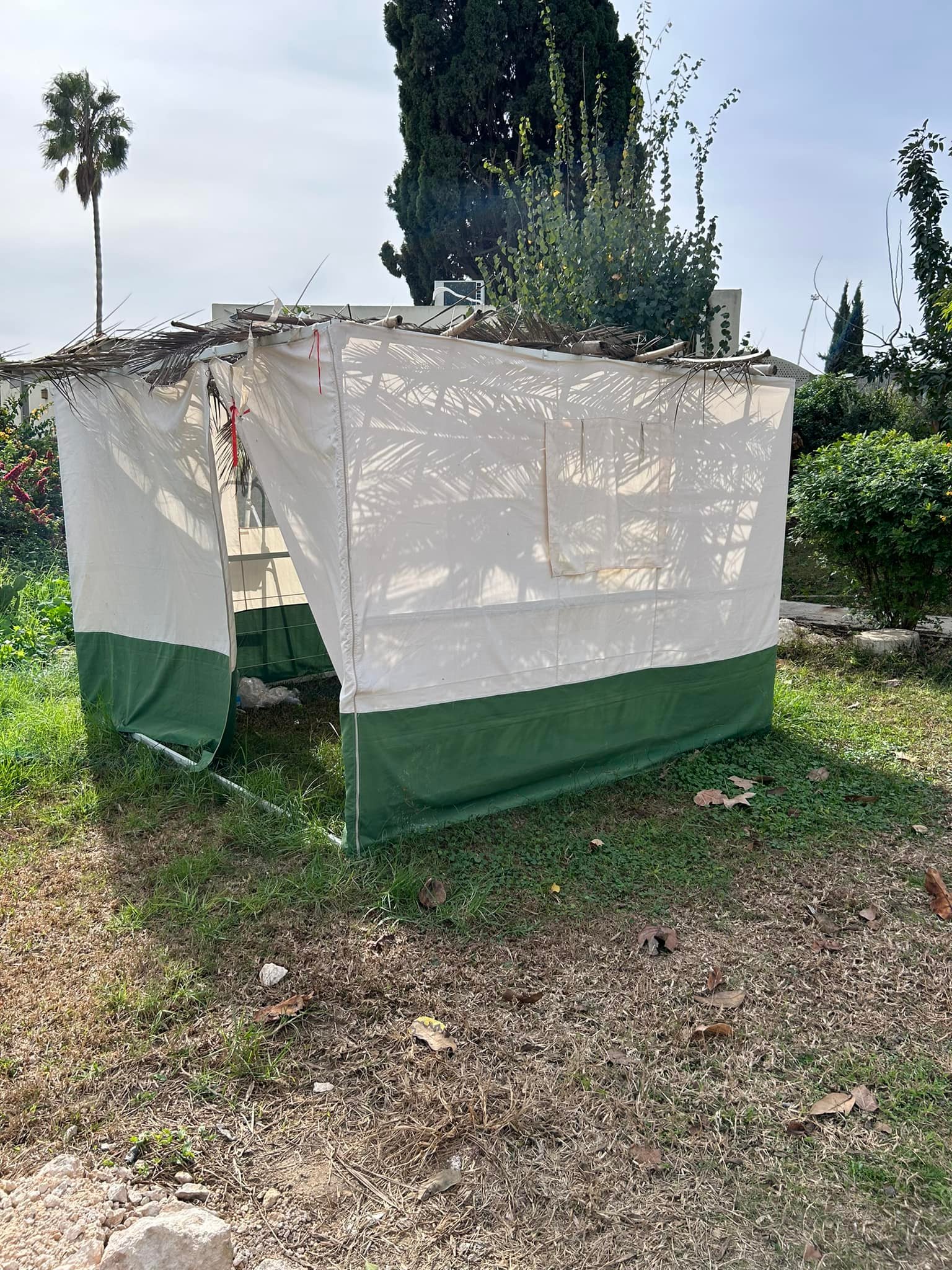|
אָנָּא יְהֹוָה
אַיֵּה הַיְּשׁוּעָה
אָנָּא יְהֹוָה
אַיֵּה הַהַצְלָחָה
אָנָּא יְהֹוָה
הֲשִׁיבֵֽנוּ וְחַדֵּשׁ יָמֵֽינוּ׃
|
Please, Cause,
Where is salvation?
Please, Cause,
Where is success?
Please, Cause,
Return us, and renew our days!
|
|
אָשִׂים עַל־רֹאשִׁי אֵֽפֶר
אַיֵּה הַיְּשׁוּעָה
בְּיוֹם שִׂמְחַת הַסֵּֽפֶר
אַיֵּה הַהַצְלָחָה
גְּרָר אֶת־בְּרִית אֲבוֹת הֵפֵר
הֲשִׁיבֵֽנוּ וְחַדֵּשׁ יָמֵֽינוּ׃
|
I set ash on my head.
Where is salvation?
On the day of the book’s rejoicing,
Where is success?
Gerar voided the ancestral covenant.
Return us, and renew our days!
|
|
דָּם נָקִי שָׁפְכוּ
אַיֵּה הַיְּשׁוּעָה
הַקִּבּוּצִים חָרְכוּ
אַיֵּה הַהַצְלָחָה
וְשׂוֹנְאֵֽנוּ לֹא שָׁכְכוּ
הֲשִׁיבֵֽנוּ וְחַדֵּשׁ יָמֵֽינוּ׃
|
Innocent blood they spilled.
Where is salvation?
The kibbutzim they scorched.
Where is success?
And those who hate us did not calm down.
Return us, and renew our days!
|
|
זִמְרַת נֽוֹבָה הֻשְׁתְּקָה
אַיֵּה הַיְּשׁוּעָה
חָמְסוּ וְנֶהֱנוּ בְּקוֹל צְעָקָה
אַיֵּה הַהַצְלָחָה
טְהוֹרִים הִתְחַבְּקוּ בְּחׇזְקָה
הֲשִׁיבֵֽנוּ וְחַדֵּשׁ יָמֵֽינוּ׃
|
The song of Nova was silenced.
Where is salvation?
They did violence, enjoying the sound of screaming.
Where is success?
Pure ones embraced tightly.
Return us, and renew our days!
|
|
יָבֵשׁ וְרֵיק הָיָה בְּאֵרִי
אַיֵּה הַיְּשׁוּעָה
כְּפַר עַזָּה שְׁבוּעַֽיִם מִכִּפּוּרִי
אַיֵּה הַהַצְלָחָה
לֹא הָיָה עֻזִּי בְּנַחֲלִי וּבְנִירִי
הֲשִׁיבֵֽנוּ וְחַדֵּשׁ יָמֵֽינוּ׃
|
Dry and empty was my well.
Where is salvation?
Kfar ˁAzza, two weeks past my atonement.
Where is success?
My strength was not in my arroyo or fallow ground.
Return us, and renew our days!
|
|
מִבֵּיתָם שְׁבוּיִים חָפְנוּ
אַיֵּה הַיְּשׁוּעָה
נָשִׁים בְּצִיּוֹן עִנּוּ
אַיֵּה הַהַצְלָחָה
סַרְנֵי פְּלֶֽשֶׁת לֹא חָנְנוּ
הֲשִׁיבֵֽנוּ וְחַדֵּשׁ יָמֵֽינוּ׃
|
They picked out hostages from their homes.
Where is salvation?
Women in Zion they abused.
Where is success?
The tyrants of Philistia had no mercy.
Return us, and renew our days!
|
|
עַזָּה כַּמָּֽוֶת אַהֲבָה
אַיֵּה הַיְּשׁוּעָה
פְּרָחִים אַל־תִּצְמְחוּ בָּהּ
אַיֵּה הַהַצְלָחָה
צַדִּיקִים נֶעְדָּרִים מֵאׇהֳלִיבָה
הֲשִׁיבֵֽנוּ וְחַדֵּשׁ יָמֵֽינוּ׃
|
Strong as death is love.
Where is salvation?
Don’t grow there, o flowers!
Where is success?
The righteous are missing from Oholibah.
Return us, and renew our days!
|
|
קִלְּלֽוּנוּ הַנׇּכְרִים
אַיֵּה הַיְּשׁוּעָה
רָֽצוּ לִבְגֹּד־בָּֽנוּ חֲבֵרִים
אַיֵּה הַהַצְלָחָה
שָׁוְא לְבָרֵךְ בַּמְּאָרְרִים
הֲשִׁיבֵֽנוּ וְחַדֵּשׁ יָמֵֽינוּ׃
|
The foreigners insulted us.
Where is salvation?
Friends rushed to betray us.
Where is success?
It is worthless to bless those who curse.
Return us, and renew our days!
|
|
תָּשִׁיב לָאָֽרֶץ אֶת־כׇּל־יוֹשְׁבֶֽיהָ
הוֹשִֽׁיעָה־נָא
תַּחֲזִיר אֶת־בַּת־עַמִּי לְנָוֶֽהָ
הִצְלִיחָה־נָא
תִּנְקֹם נָקָם בְּכׇל־אוֹיְבֶֽיהָ
עֲנֵֽנוּ בְּיוֹם צוֹם תַּעֲנִיתֵֽנוּ׃
|
You will return the land’s inhabitants to it.
Save us, please!
You will bring my poor people back to her abode.
Grant us success, please!
You will avenge her enemies.
Answer us on this fast-day!
|

